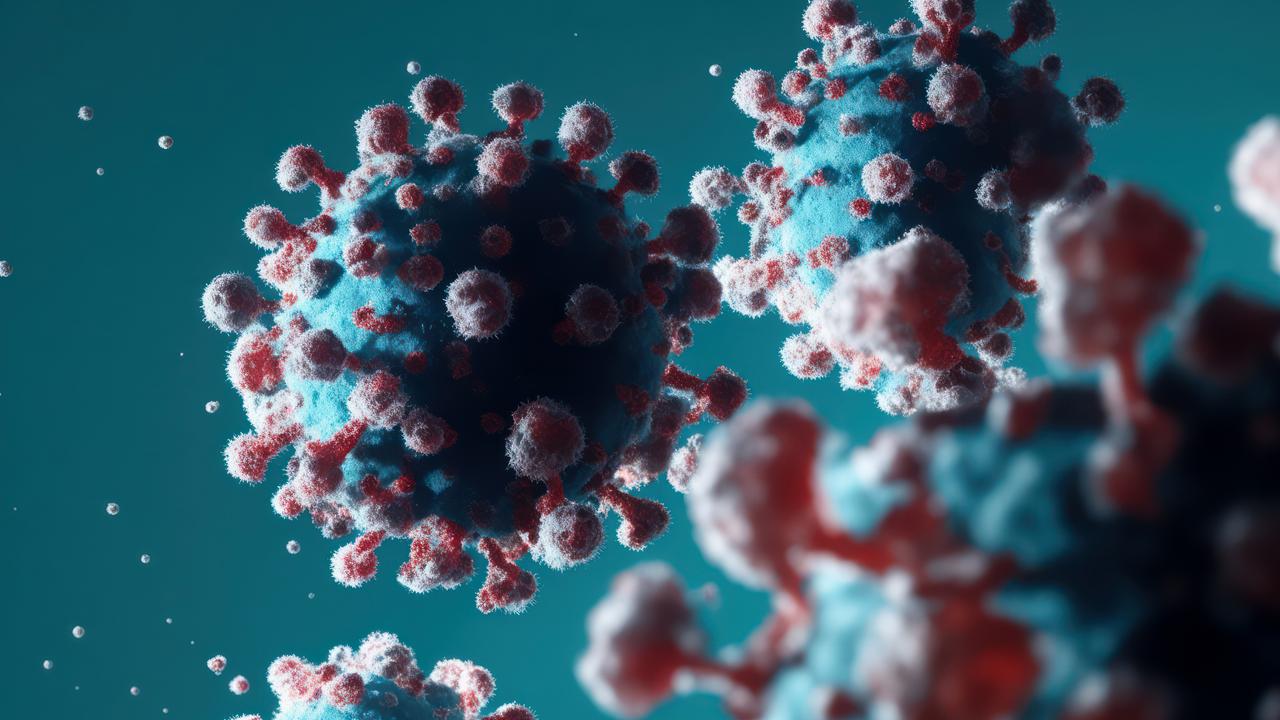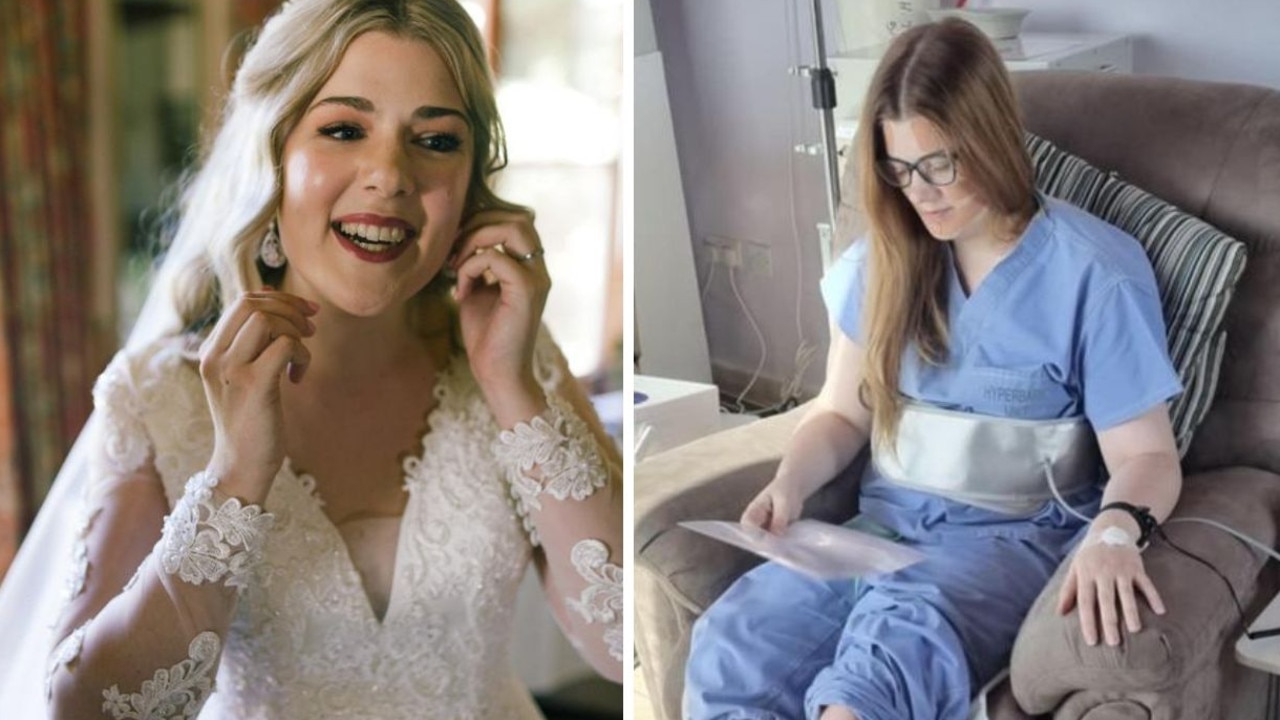Reason behind mum’s sinister backache revealed
When Lauren Jolly, 39, felt a dull ache in her lower back, she thought it must be because she had moved house.

Illness
Don't miss out on the headlines from Illness. Followed categories will be added to My News.
When Lauren Jolly, 39, felt a dull ache in her lower back, she thought it must be because she had moved house.
But really, other signs had already alerted her to the truth that she was terrified to admit to family and friends – that she thought she had cancer.
The mum-of-two, from England, said: “I didn’t share that widely with family or friends because I thought everyone would think I was being a bit of a hypochondriac – but my gut feel was that it was cancer.”
Ms Jolly was right, so she said she wasn’t even surprised when she got her diagnosis six months later, in December 2023, The Sun reported.
Ms Jolly first began to experience bleeding in between her periods in June 2023.
She wondered if the bleeding was a sign of perimenopause or due to the stress of a busy life, working and looking after two young kids.
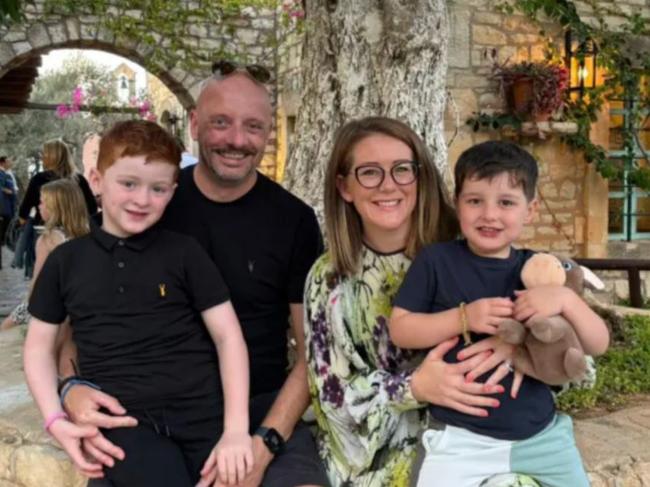
But Ms Jolly admitted: “Honestly from day one, I had this sinking feeling that something was wrong.
“For a few weeks, I put it down to stress or the beginning of perimenopause but something was just niggling at me that it was more than that.”
She monitored the bleeding, noticing that it was getting heavier and that it happened after bladder or bowel movements, meaning it wasn’t hormone-related.
With the lower back pain – which she thought could be either due to moving house or a new mattress – Ms Jolly had a gut feeling that something wasn’t right.
She made an appointment with her GP in September. They didn’t think it was cancer, but made an urgent referral just in case.
The specialist she saw next also told Ms Jolly he didn’t think it was cancer, but decided to do some punch biopsies and a colposcopy to be on the safe side.
“In my head, I knew at that point it was cancer,” Ms Jolly recalled.
True to her instincts, doctors found that Ms Jolly had cervical cancer – despite having had all her smear tests, which help prevent the disease.
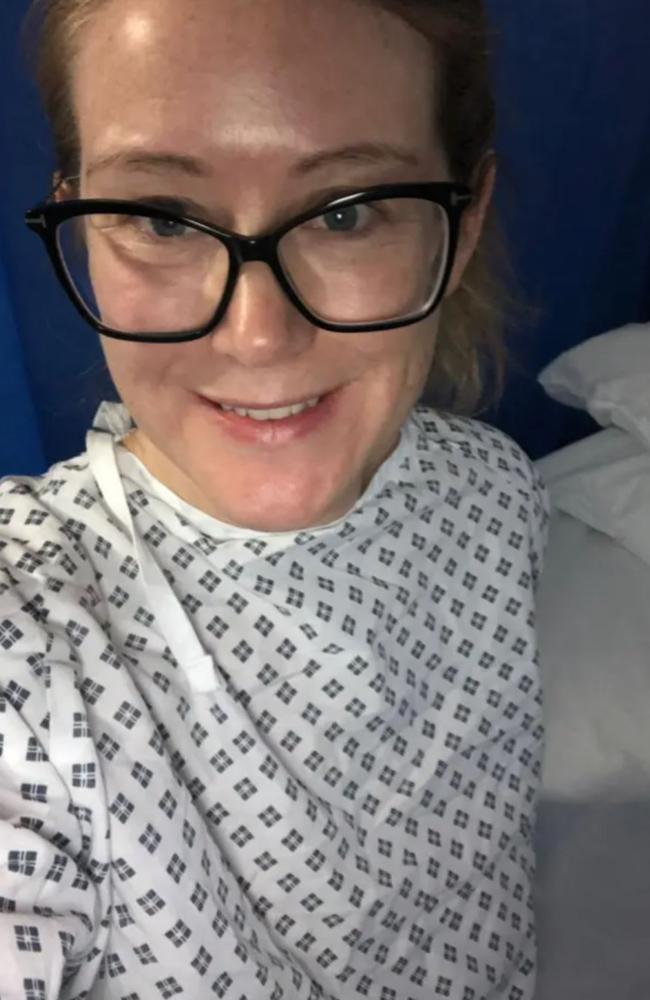
The Lady Garden Foundation reports signs of the disease are abnormal bleeding, pain during sex and vaginal discharge that smells unpleasant.
“I wasn’t surprised at all to hear I had cancer,” Ms Jolly, who is married to Matt, 47, remembered.
“I had had this feeling it was cancer since the bleeding started a few months earlier.
“That first day was much harder for my husband, parents and brother.
“I hadn’t shared with them that I thought it was cancer as it sounded a bit nuts to say it out loud, so for them it was much more of a shock.
“It was heartbreaking to see the worry in their faces.”
After her diagnosis, Ms Jolly immediately started the gruelling next steps to curb the spread of the disease.
Five weeks after being diagnosed, in December 2023, she had a radical hysterectomy, which meant the removal of her uterus, cervix, fallopian tubes, the top part of the vagina and the tissue surrounding it, and her pelvic lymph nodes.
The surgery took place the week of her 10th wedding anniversary and her son Rhys’ fourth birthday, adding extra emotional turmoil.
Once everything that had been removed was tested, it was revealed that the cancer was considered stage 2.
The cancer had spread from Ms Jolly’s cervix to her vagina, and there wasn’t a cancer-free margin near her bladder.
This meant she needed to go on to have chemotherapy, radiotherapy and brachytherapy, which was an incredibly daunting prospect.

“When I was first diagnosed and I found out I needed the surgery, I felt really confident that I was going to be okay,” Ms Jolly remembers.
“I wasn’t surprised at all on that day of diagnosis, whereas I think a lot of people are quite shocked, so it really hits them.
“But when I got my second diagnosis and found out that I had to have chemo and radiotherapy, that was much harder because there’s such a huge list of side effects that it’s really scary to face up to.
“I had friends and family who had had chemo and the thought petrified me.
“My main priority was getting through and making sure that I was as normal as possible for my little ones because I just didn’t want it to impact their lives at all. I didn’t want them to ever remember it.
“It’s weird when I look back on it now because it just doesn’t feel real.”
After months of treatment that took a huge toll, Ms Jolly was given the all-clear in July, and is now a year-on from her lifesaving surgery.

She said the weeks and months post-treatment were like an “emotional car crash” as she came to terms with what she had been through.
She still deals with lingering exhaustion and fatigue since her treatment, and needs regular check-ins with her gynaecological team.
But she’s back to the office three days a week, recently went on holiday with her husband and kids, and even attended a Taylor Swift concert.
After surviving cervical cancer, Ms Jolly is now determined to raise awareness of gynaecological cancers.
“It blows my mind that we’re not taught about cervical cancer symptoms at school and that it’s not something that’s written on tampon and sanitary towel boxes and on the back of doors in toilets,” Ms Jolly said.
She wants to encourage women to always trust their bodies and report any unusual symptoms, even if they’ve had a smear test recently.
Ms Jolly had always been to her smear tests, saying she saw them as a kind of “vaccine” that would protect her against cervical cancer.
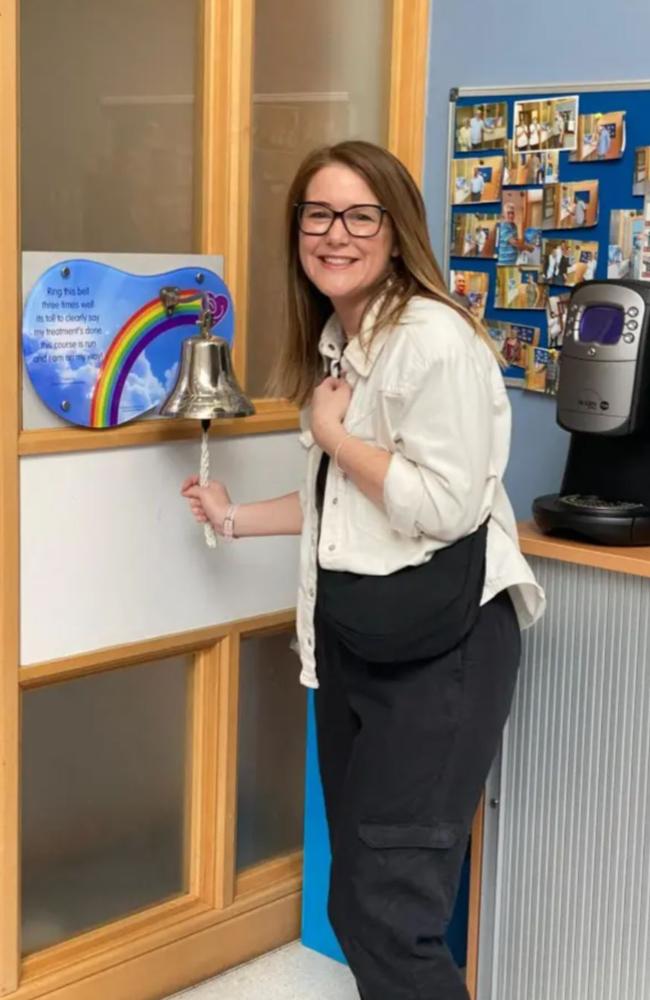
Cervical screenings do, indeed, protect you from cervical cancer by looking for risky types of HPV, a virus that can live in the body and in some cases, develop into cancer.
But the test is not perfect, which is why it is important to see your GP for any symptoms of cervical cancer, such as bleeding between periods and after sex, and pain in the lower back, tummy or pelvis.
Ms Jolly said: “I honestly thought that if I had my smear test, I was absolutely fine.
“I always assumed that if I went for my screening I was protected, a bit like it was some kind of vaccine. I realise now that isn’t the case.
“I still feel really, really strongly about smear tests. A lot of cervical cancer cases are picked up in smear tests.”
A few years before her diagnosis, Ms Jolly had experienced one abnormal smear test.
This meant she may have had abnormal cells, which in some cases need to be removed to prevent them turning into cancer.
It alerted her to be more aware of gynaecological cancers.
She said: “I want people to know that there are five gynaecological cancers – I had never even heard of vulval and vaginal cancer until I got diagnosed with cervical cancer.
“For anyone that experiences anything abnormal, don’t be afraid to go to the doctor; you’re never wasting their time.
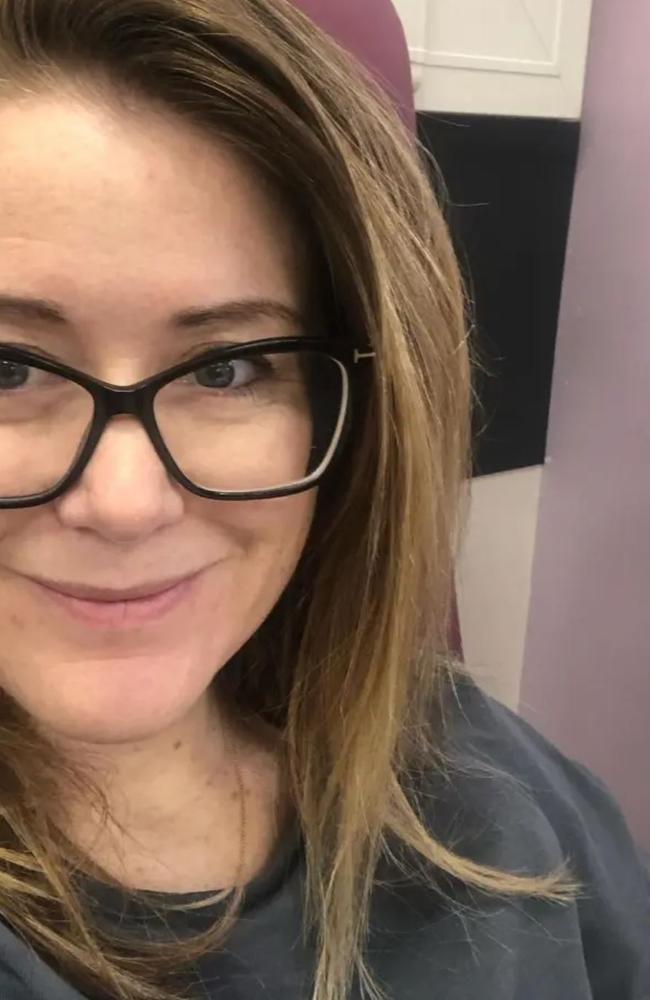
“I think quite often one of the reasons that we don’t go is because we feel embarrassed, even more so when it’s something related to your bladder, your bowel or your womb.
“But it’s not embarrassing – I reckon about 100 people have seen my bits in the last year!”
According to NHS figures, around 2,700 women are diagnosed with cervical cancer in England each year – and the NHS screening program helps save around 5,000 lives every year.
The NHS often calls on women to take up their smear test offer – in November, it said five million women were not up to date with their routine check-ups.
Ms Jolly said: “Cervical screening rates are at an lowest and this breaks my heart.”
Despite the traumatic year behind her, Ms Jolly is grateful for those in her life.
“It’s been the worst, hardest, most gruelling, awful year of our lives,” she explains.
“But in so many ways it’s been the best year of our lives because we’ve been so surrounded by love and support.
“I have been so lucky to have been really looked after by my employer.
“Please book your cervical screening – and always listen to your body if you feel like something is wrong.”
The Lady Garden Foundation is a UK charity revolutionising women’s gynaecological health by raising awareness and funding.
For further information on gynaecological cancers check out the website.
This story originally appeared on The Sun and reproduced with permission
Originally published as Reason behind mum’s sinister backache revealed



